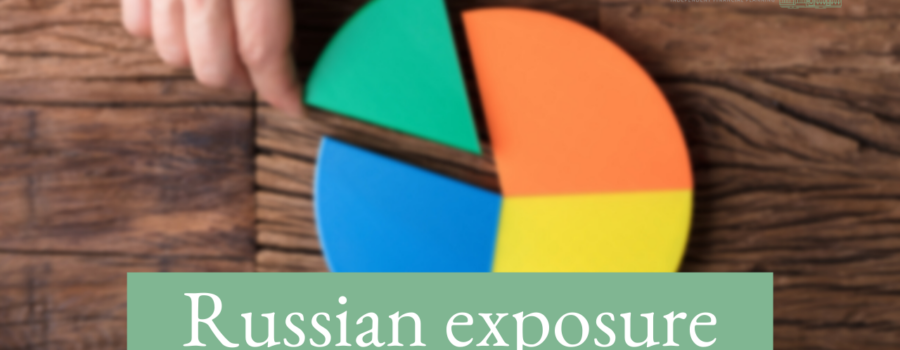How much of my investment portfolio is exposed to Russian companies?
It’s a question we’ve received from a few of our clients in recent days, unsurprisingly given the global focus on Russia’s invasion of Ukraine.
With Western nations imposing increasingly strict financial and economic sanctions against the Russian government and associated persons, it is little surprise that the investment exposure to Russia is a consideration.
As I’ve written before, first and foremost, the Russian invasion of Ukraine is a human tragedy, and we should not lose focus on the plight faced by the Ukrainian people.
From an investment perspective, we don’t expect the current military action to have a significant medium or long-term impact on portfolio performance. If anything, the weight of economic sanctions and resulting global economic slowdown could prompt central banks to step away from their monetary tightening plans, a generally positive outcome for equities.
However, when we think about our investment portfolios, we think of them in terms of the moral and financial aspects.
Is it any longer moral, right, or just to put our investment or pension portfolio monies to work supporting Russian companies?
No specific Russian exposure
Here’s the good news from an investment perspective. We don’t have any specific Russian investment funds within our recommended portfolios.
Russia sits within our emerging markets section of our portfolio asset allocation, which is mercifully tiny – ranging from nil in our cautious portfolios to 4% in our moderate portfolios, and 13% in our aggressive portfolios.
Remember, that’s not 4% or 13% of a portfolio invested in Russian companies, but Russia is a small part of that allocation to emerging market equities.
Looking at our preferred investment fund in this asset class, an index tracker fund, this aims to track the performance of the MSCI Emerging Markets ESG Leaders Index. This index is a capitalisation weighted index that provides exposure to companies with high Environmental, Social and Governance (ESG) performance relative to their sector peers, tracking the performance of large and mid-cap companies across 25 Emerging Markets countries.
Russia does not feature in the top five countries by capitalisation represented by this index, around 80% of the market capitalisation represented. We believe Russian exposure is minimal of the remaining 20% exposure that is not broken down by country level. For a non-ESG emerging markets index, Russian company exposure is 2-3%, but the ESG credentials of our chosen index and index tracker fund will reduce this further.
So, on that basis, we can safely assume that our moderate model portfolio contains less than 0.001% of your overall portfolio invested in Russian companies.
We’re also keeping a watching brief on a decision by MSCI, the provider of the index benchmarks followed by emerging markets fund managers, to remove Russia from its indices entirely.
Indirect Russian exposure
There’s some indirect exposure to Russian companies to consider, too, within the natural resources and energy categories. But again, here at Informed Choice, we do not specifically target these sectors within our asset allocation models. Any indirect exposure here is likely to be within UK equities, investing in or in partnership with Russian ventures.
On that front, we know that Shell is exiting its Russian operations, including a significant liquified natural gas plant. BP has also dropped its stake in the Russian oil giant Rosneft, a move that comes at an expected cost of $25 billion.
As always, please do speak to your Informed Choice Financial Planner with any questions or concerns, and we will continue to monitor the situation.

